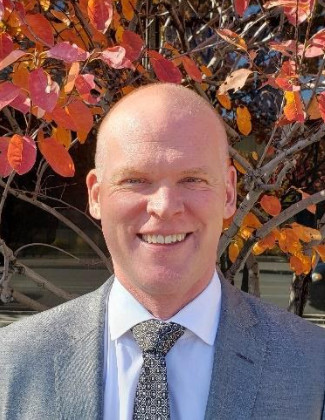Blog / David Harper / February 16, 2022


On January 20th 2022, the Government of Canada announced Resourceful, Resilient, Ready: Canada’s Strategy for Satellite Earth Observation– a national strategy that will guide Canada’s actions and investments related to satellite Earth Observation (EO) data, technology, and partnerships over the next 15 years. This strategy builds on Canada’s wealth of expertise and rich history in EO reaching back several decades. As GEO Principal for Canada, I believe this long-term strategy will benefit both our national and global commitments and collaborations in satellite EO.
In Canada, many government research programs and operational activities rely on satellite EO data to monitor our oceans, atmosphere and vast landmass including the remote Arctic. This data feeds into countless operational services and informs decision-making. The dependence on this critical source of data and information will only continue to grow in the coming years and decades. Canada’s new strategy not only reflects the important satellite EO needs across the Government of Canada, but also considers the inputs and needs of our key external stakeholders including industry, academia, and Indigenous partners. With our Indigenous partners, we intend to advance the co-development of satellite EO applications integrated with traditional knowledge that can address community-identified needs.
The strategy also recognizes that in order to maximize the use of satellite EO for research, innovation and decision-making, investments need to be made across the full EO value chain. This means not only investing in satellites and data sources captured in the upstream portion of the value chain, but also in the ground infrastructure and data storage, cataloguing, and archiving in the midstream, as well as data processing capability and platforms for analytics and the delivery of value-added products and services in the downstream portion of the value chain. It also recognizes that the downstream portion of the value chain should also include investments in research, researchers and data scientists to fully capitalize on our EO data sources. We will work to strengthen skills development and satellite EO literacy in our youth by focusing on improved awareness and understanding of the technology's potential, inclusive training and education opportunities, and support for entrepreneurship.
Of note, the importance of enhancing access to open data as well as fostering key partnerships are two key pillars of Canada’s satellite EO strategy, demonstrating Canada’s commitment and alignment to the core objectives of the GEO community. Canada will continue to work with GEO and our partners to maximize the full value of satellite EO data and technologies in advancing our national goals as well as our contributions to global challenges of importance to all of us, including climate action, disaster risk reduction, and sustainable development.
With our new satellite EO strategy as a backdrop, Canada looks forward to new collaborative opportunities to leverage both in-situ and satellite EO in supporting our collective goal of realizing sustainable socio-economic and environmental benefits for all.
About the author

David Harper is Canada’s GEO Principal and the Director General of the Monitoring and Data Services Directorate (MDSD) within the Meteorological Services of Canada (MSC) at Environment and Climate Change Canada. In his role at MSC, David is responsible for leading the collection and management of meteorological, climatological, hydrometric and environmental data in support of water, weather and climate services in Canada. This includes the management, design, operations, renewal of MSC’s national upper air, surface, marine, hydrometric, lightning, radar, and satellite receiving station networks as well as the IM/IT infrastructure to ensure essential data is openly available for use. David holds a Master of Science Degree in Biology from Université de Montréal and a Bachelor of Science Degree from McGill University with a Joint Major in Biology and Environmental Sciences.
Thank you for your subscription to the GEO Week 2019 mailing list.